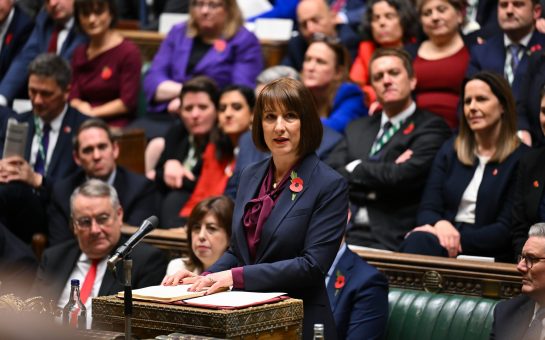Banks should have been ‘left to go bust’ instead of allocating tax payers’ money to bail them out, says a leading economist during a Manchester debate.
Dr Stephen Davies believes that structural economic care packages are leading the economy towards its next wave of the financial crisis.
The director of education at the institute of economic affairs also voiced his bleak prognosis for the near economic future, acknowledging unresolved issues from the 2008-09 financial crash.
Speaking at the Guardian Live debate, Dr Davies hoped to inspire economists into an honest confrontation and resolve of the exponential accumulation of charges compiled since the financial crisis.
Dr Davies said: “We are actually not out of the woods yet, I think there quite likely is going to be, probably in the next nine months or so another round of financial crisis.
“And I think that in the situation that we are in, we are going to be faced with some of the charges that we ‘ducked’ seven years ago.
“We still haven’t dealt with problems that we should have dealt with in that way in 2008-09.
“What we should have done is bit the bullet. We should basically have allowed the major financial institutions to be wound up. We should certainly have let RBS and a number of other banks just go bust.”
Voicing a determined classical economic outlook on the free market, the IEA head of education explained the economic pain that must be faced in the aftermath of the crisis of 2008.
He added: “We should not cling on to the decrepit or insolvent firms, we should basically go forward into the new world.”
Dr Davies offered an austere outlook for companies as he said: “I fear, I hope I’m wrong but I strongly suspect that we’re going to see quite a lot of bankruptcies in the next nine months.”
Talking on the subject of Greece, he said: “Quite simply, Greece should leave the euro and unless it does leave the euro I don’t hold that much hope for it I’m afraid.
“And I’m not alone in that, I think pretty much 95% of economists, maybe even closer to 98% of economists think that’s what to do.”
Dr Davies also spoke of businesses such as Uber and Air BnB as ‘revolution’ for the economy.
He said: “We’re seeing a revolution in the way the economy works right now, what drives market economy is innovation.
“And we’re seeing an unprecedented wave of innovation in business, in the way commerce and industry are organised.
“Paul Mason, Channel 4, claims that we’re moving into a post-capitalist economy, I don’t know where he gets this from actually, because to me, this sounds like capitalism on steroids.
“Because basically the promise of this new eco that we’re seeing is a world in which every man and woman is a capitalist.”
In this vision of the future of economics, Davies voiced his adverse taste for the government.
He said: “What I don’t like is government; I’d like to see as little government as possible because that’s based upon power and what I want is voluntary co-operation.”
Image courtesy of Learn Liberty via. YouTube, with thanks.



